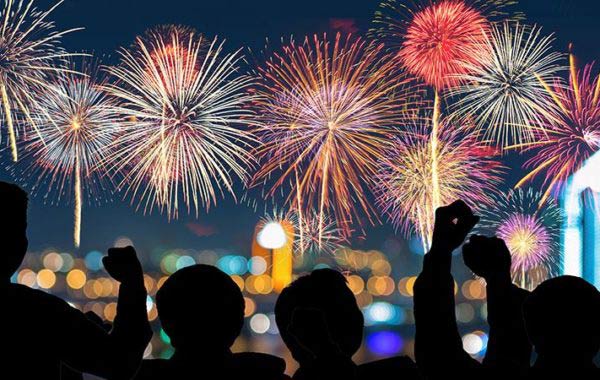June is Fireworks Safety Month, and that means the Fourth of July is rapidly approaching. Independence Day may be a few weeks away, but June abounds with sparklers, fountains, and Roman Candles. As beautiful as they can be, debris and the bright flash of fireworks present real dangers to the health of your eyes.
When it comes to fireworks, the bigger the better. But that also means a higher risk for being injured by falling or projectile fragments from fireworks explosions or malfunctions. Too bright a flash or long exposure can also cause result in blindness or burns to the cornea. General eye care and fireworks safety can go a long way in mitigating these risks.
Sixteen percent of an estimated 1,200 emergency department-treated fireworks injuries were to the eye, according to the most recent report from the U.S. Consumer Product Safety Commission. The most common injuries among that percentage were contusions (bruises), lacerations, and foreign bodies.
Sparklers accounted for the largest single-point percentage injury, at 24 percent, and children/young adults under 20 years old made up 42 percent of all fireworks-related injuries. Safety and proper planning are two of the simplest, yet most important ways to prevent injury.
Tips for protecting your eyes during fireworks season:
- Maintain proper distances when attending fireworks shows and especially during at-home celebrations. The recommended safe distance is at least 500 feet, and fireworks show barriers are there for a reason. Obey local laws and ordinances at all times, and see your Michigan eye specialist if you experience any sudden changes in vision.
- If you’re handling fireworks, use eye protection. You never know when something could go wrong, and you don’t want to lose your eyesight because of poor planning. Your eyes are too important to be careless.
- A smaller firework doesn’t mean smaller risk: those sparklers that seem so innocuous will burn at 2,000°F, which is hot enough to melt some metals (e.g. gold and copper). Never let small children light fireworks (even sparklers) and closely monitor their use.
- Be aware of your surroundings and understand that alcohol impairs one’s ability to make coherent decisions. Risk is not mitigated by a good time, and your vision/depth perception is also affected when you drink. Understand your tolerances and if necessary, designate someone who hasn’t been drinking to handle fireworks to ensure everyone’s safety.
Comments are closed.



